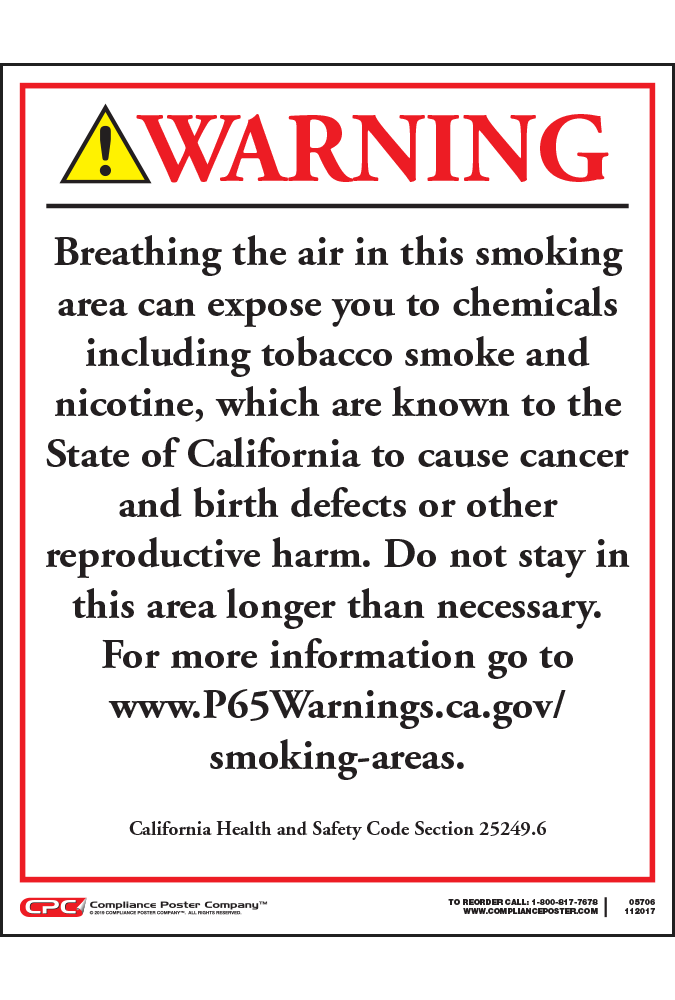California Prop 65 Warning Requirements
California’s Proposition 65 (“Prop 65”) requires businesses to provide a clear and reasonable warning before knowingly and intentionally exposing anyone to a listed chemical, at anticipated exposure levels which pose a significant risk of cancer, birth defects, or other reproductive harm. Because exposures that occur in designated smoking areas are known to cause cancer and birth defects or other reproductive harm, a warning sign must be posted.
Who Must Post the Prop 65 Designated Smoking Area Exposure Warning Sign?
Businesses permitting smoking in designated areas must comply with the warning sign requirements of Proposition 65. Businesses with less than 10 employees are exempt from Prop 65’s warning requirements.
Required Prop 65 Designated Smoking Area Exposure Warning Sign Content
New Prop 65 regulations, which require compliance no later than August 30, 2018, describe the content and methods of communicating designated smoking area exposure warnings. The Designated Smoking Area Exposure Warning Sign contains the text specified in the regulation, 27 CCR § 25607.29.
The Prop 65 Designated Smoking Area Exposure Warning Sign:
- notifies exposed individuals that breathing the air in the smoking area can expose them to chemicals including tobacco smoke and nicotine, which are known to the State of California to cause cancer and birth defects or other reproductive harm
- advises exposed individuals not to stay in the area longer than necessary
- provides the Prop 65 website for additional information – P65Warnings.ca.gov/smoking-areas
Where are California Prop 65 Designated Smoking Area Signs Posted?
A warning for environmental exposures from a designated smoking area meets the requirements of the regulation if it contains the required warning statement and is posted at the entrance to and within the area in which exposure occurs. Signs must meet specified size and format requirements.
The penalties for violating Proposition 65 by failing to provide warnings can be as high as $2,500 per violation per day.


